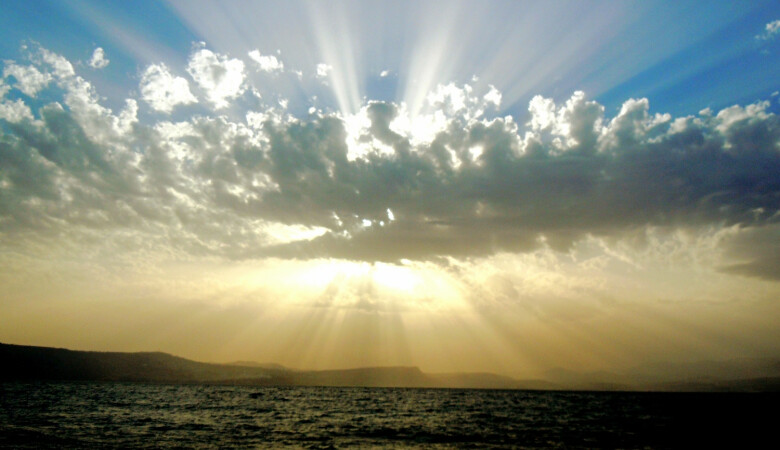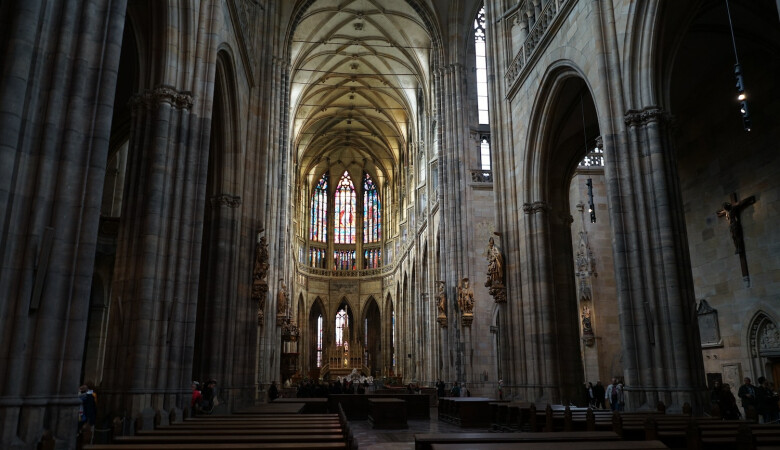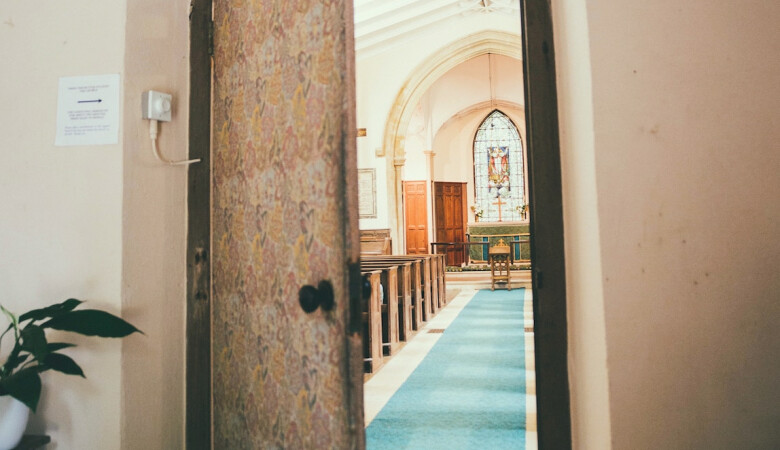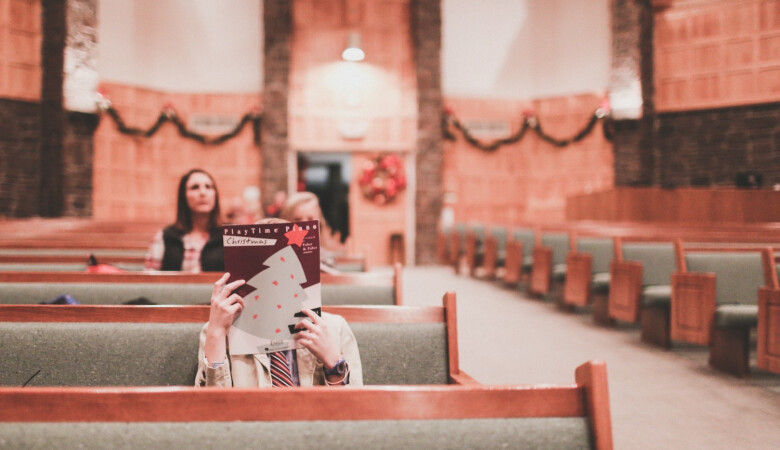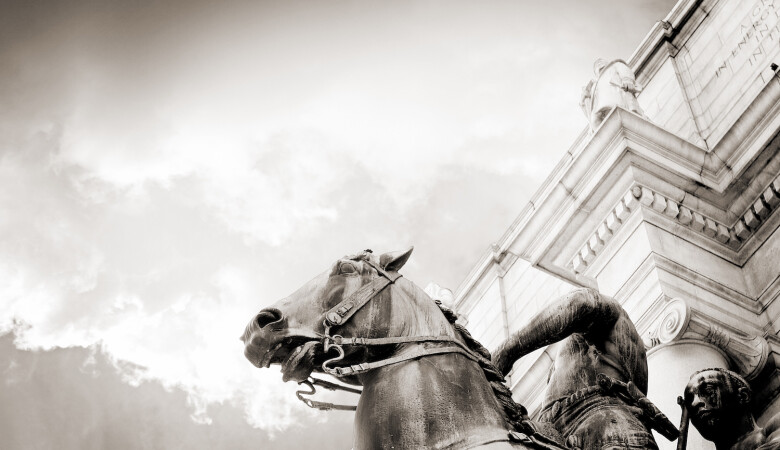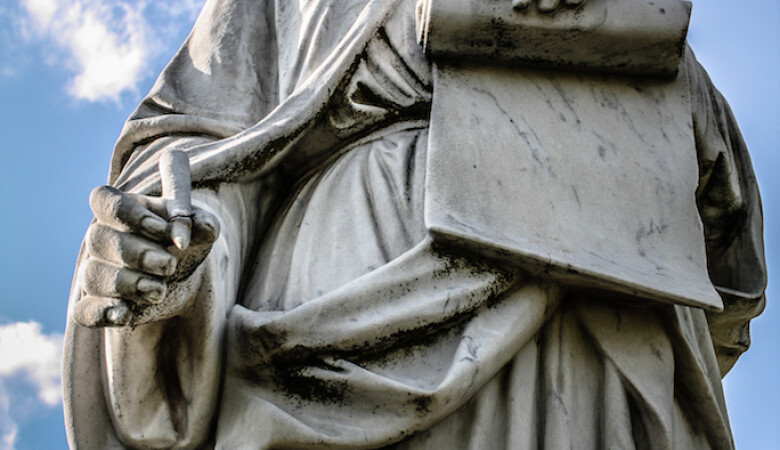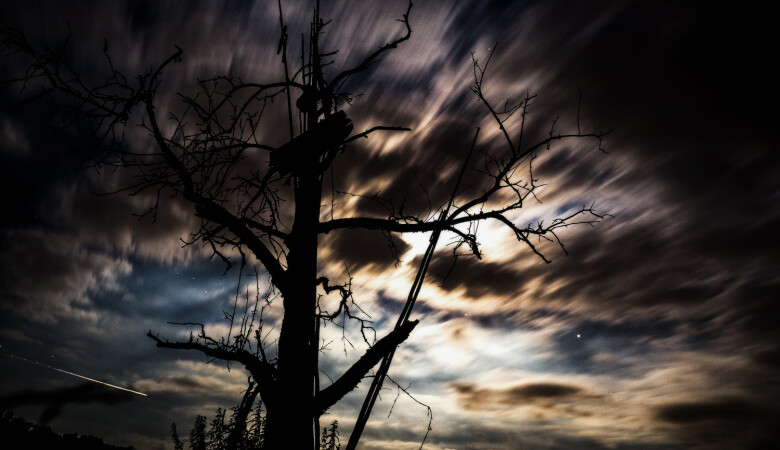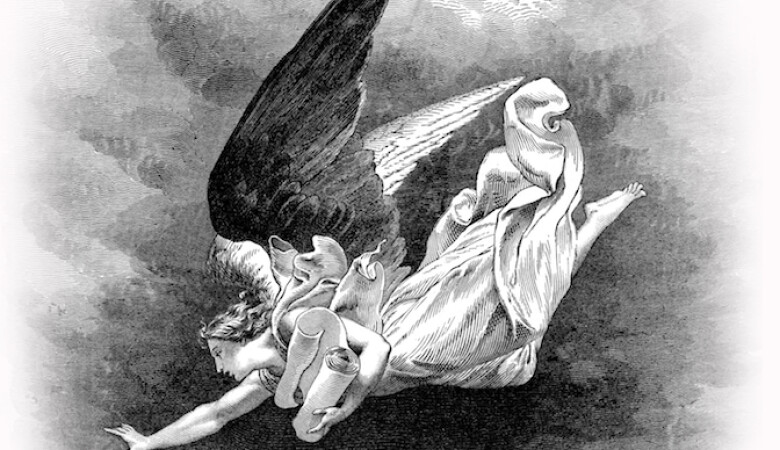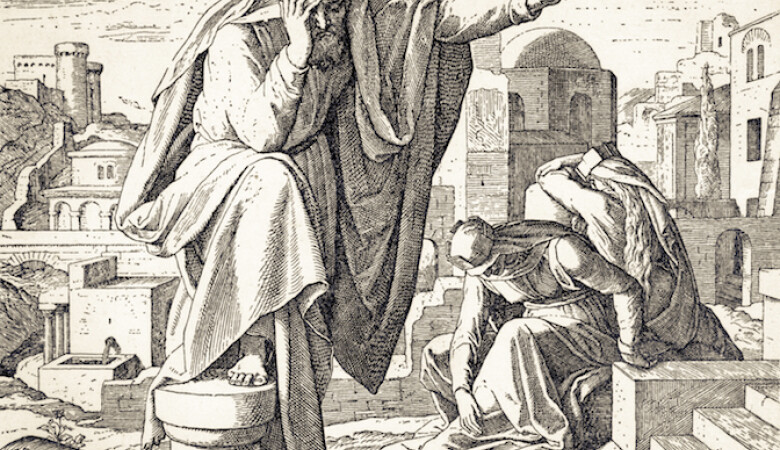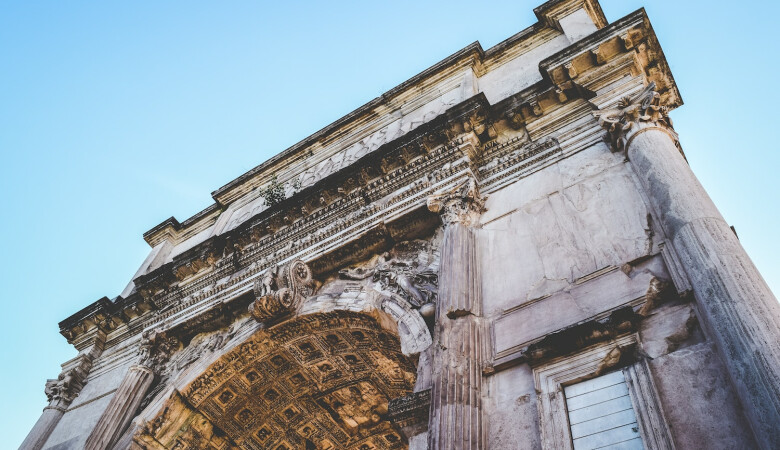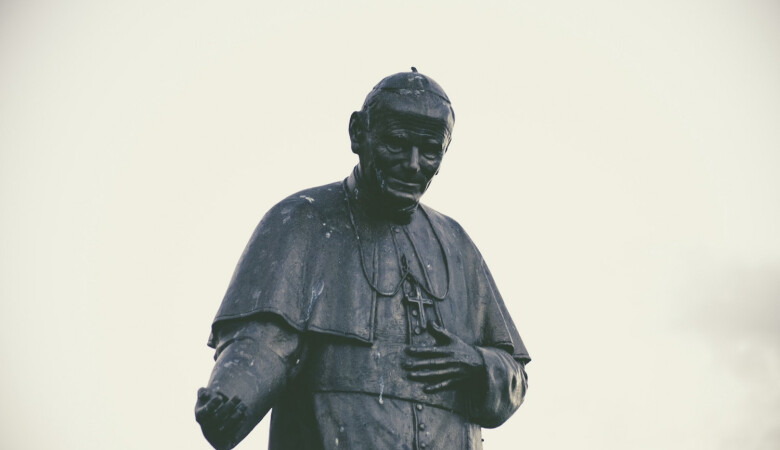The Unveiling of the Church (Revelation Sermon 14 of 49)
July 23, 2017 | Andy Davis
Revelation 7:9-17
Evangelism, Missions, Worship, The Church
Introduction
I have had the privilege of worshiping all over the world in local churches. It has been an incredible, rich blessing to me to be able to see what our brothers and sisters in Christ are doing in local churches all over the world. My first mission trip was in 1986 in Kenya. I will never forget worshiping in the Rift Valley, a very hot valley in the center of Kenya, with converts among a tribe of Maasai people. The Maasai were some of the most hostile to British rule and they fought the British right to the end when the British finally gave the country over to the Kenyans. As a people, they are very hostile to the West and to the Gospel. But a small number of them had been brought to faith in Christ and we were sitting on these wooden benches under a tree worshiping together.
The next summer when I was in Pakistan, we worshiped with a small handful of converts from the Muslim faith from Afghanistan who had fled the Russians. We were going back to some of the refugee camps on the border in Peshawar, Pakistan to minister to them. It was a very small group of people, but it was amazing that there were any at all when you think about the hostility of Afghan Muslims to the Gospel, to see some of them come to faith in Christ and be able to worship with them. It was incredible.
I went with Ron Halbrooks to Shanghai where we worshiped in a high rise building in this sprawling Chinese city of twenty-four million people. We had spent the day before traveling on the railway system there. I felt we could travel on that railway for a month and not cover the same track. It went on forever. I have never felt so small. Then we went up the elevator to a floor really high up. There was a small cell church there with a dozen people, maybe more, in folding chairs. We listened to worship songs on a cassette tape player and we sang. After it was over, we fellowshipped, with this tiny, little cell church with a heart for their city.
The largest assembly I have ever preached to was in Pune, India. There were perhaps a little less than 5,000 people present. That was a huge number for me, but the population of Pune is 3 million. The church that Christi and I served in Tokushima in Japan was the smallest church I have ever preached to on a Sunday morning. There were eight people; I do not remember if that included Christi and me and our two children. I have had the privilege of ministering all over the world to Christian congregations of various sizes.
One thing I have noticed is that in every place, the church body is outwardly, visibly unimpressive. Outwardly, it seems insignificant to the surrounding culture and city; it seems to be drowned by its non-Christian setting. All over the world the Church seems to be dwarfed by the world of unbelievers. After 2,000 years of the powerful advance of the Gospel from Jerusalem through Judea and Samaria and now heading toward the ends of the earth, under the powerful guidance of the third person of the Trinity, the Holy Spirit, the Church is still weak, unimpressive, small in the locality where it gathers. This is a challenge to our faith. If Jesus Christ really is God, if he really is the only begotten Son of God, if he really is the only Savior of the world, then why is his church so unimpressive after 2,000 years? Why so small? Why so weak? Why so flawed and so hindered by sin?
This is an especially acute problem for cross-cultural missionaries who have left everything and made great sacrifices to serve Christ in challenging locations, saying goodbye to a comfortable Western lifestyle. They settle into a whole new and much more difficult pattern of life in some distant location, a third world city, perhaps, or a Muslim capital city in a Muslim country or near a refugee tent city or in some remote mountainous location. They learn the language and the culture and slowly build relationships with the people. After a couple of years they may have a handful of people who are marginally interested in their message. That is happening all over the world.
It is easy to become discouraged at the outwardly unimpressive progress of the Gospel and the display of the local church. Even more troubling, when you become a member of a local church and you start to get to know the people, they are rather unimpressive as well, except in the fact that they are so imperfect. The church is divided and there are struggles and sin. We need God to give us a vision of the Church in all its glory, of all of its radiant perfection, when all is said and done. No book of the Bible does that better than the book of Revelation. We have it in this famous passage in Revelation 7 and even more so at the end of the book, in Revelation 21 and 22, when we will see the bride of Christ fully dressed for her wedding day, descending from heaven, glorious and beautiful. We need that vision from the Book of Revelation.
The word Revelation means “an unveiling” — a pulling back of the veil so we can see something that was hidden before. What is unveiled in Revelation? First and foremost, we have unveiled for us the glorious Christ. It is the revelation of Jesus Christ; we see him unveiled, glorious. We see him moving through the seven golden lamp stands representing local churches, and we see him ministering to them. He is radiant and glorious and powerful. We also see the throne of Almighty God unveiled; He is seated on His throne ruling Heaven and earth. The future is unveiled and as this book progresses, we will see the wrath of God poured out on the rebellious nations of the world. But what is finally unveiled is the church of Jesus Christ — the glory of the redeemed from every tribe and language and people and nation. This unveiling is the climax of the Bible, and the fulfillment will be the climax of history.
When I was growing up, every year we watched the movie The Wizard of Oz. I found it terrifying and creepy with its flying monkeys and more. As an adult I have watched it with new eyes, and it is even creepier. At the climax, Dorothy and her three friends, the tin man, the scarecrow, and the lion, are standing before the great Oz, with his terrifying, booming voice and disembodied, larger-than-life head made of mist and smoke. They have finally killed the Wicked Witch of the West and have brought her broom as proof so that they can receive from the Wizard of Oz what he promised, help for each of them on their quests. But again he defers them: “Go away and come back tomorrow.” They are discouraged, but Toto, the little dog, pulls the curtain back to reveal a little old man speaking with a big voice into a microphone. As he suddenly realizes that he has been unveiled, he booms, “Pay no attention to the man behind the curtain.” But they are not deceived and they immediately begin to berate him. “You're a humbug,” they accuse. “You're a fraud.” And so he was.
The effect, when we finally die and go to Heaven and experience the reality of what this book is talking about, will be exactly, infinitely the opposite direction. We will realize how greatly we underestimated Almighty God and His glory, His Son, our Lord and Savior, Jesus Christ, and the glory of His church and how beautiful she will be when she is finally perfected. We have underestimated the greatness of all this. We need this vision. If we are going to be faithful in the Great Commission that God has given to us, we need to be reminded again and again that we are going to win — that we will be successful — because it is so outwardly unimpressive.
We have the command of God in Matthew 28:19-20 to “‘go and make disciples of all nations, baptizing them in the name of the Father and of the Son and of the Holy Spirit, and teaching them to obey everything I have commanded you.’” In Matthew 24:14, Jesus prophesies that the preaching will happen: “‘And this gospel of the kingdom will be preached in the whole world as a testimony to all nations, and then the end will come.’” The mission will be accomplished; it will be finished, but will it be successful? The answer, overwhelmingly, from both the Old Testament prophets and in Revelation 7, is absolutely, “Yes! The preaching of the Gospel will be overwhelmingly successful!” That is what we will look at today.
Let’s establish context here in Revelation 7. Five weeks ago, my last time preaching, we came to this magnificent passage, which I know I have quoted dozens and dozens of times in various sermons over the years. Today I get to preach on it in a patterned, exegetical way, but since we are right in the middle of Revelation 7, I want to provide our context first.
Who Shall Be Able to Stand?
An Interlude that Explains Everything
Revelation 7 is an interruption, a glorious, majestic interlude, in the middle of breaking open the seven seals in the scroll that was taken from the right hand of Almighty God by Christ. To understand what that is about, we have to go back to the beginning of the book and get an overview. The Book of Revelation was written by the Apostle John, who was an exile on the island of Patmos. He is sent there for preaching the word of God and the testimony of Christ. He has a vision on the isle of Patmos, first of Christ, then of a door, standing open in heaven. He hears the voice of Almighty — of Christ — telling him to come up and go through that doorway, which he obeys by the power of the Spirit. As he goes through the doorway, he sees the throne of Almighty God. Surrounding the throne, he sees concentric circles of worship, people and angels praising God for His creation, saying “You are worthy, our Lord and God, to receive glory and honor and power, for you created all things, and by your will they were created and have their being.”
In Revelation 5, we have, in the right hand of Almighty God on His throne, a scroll sealed with seven seals. A proclamation goes out, asking, “Who is worthy to break the seals and open the scroll?” But no one is found who is worthy to take the scroll and open its seals. John weeps, but he is told, “‘Do not weep. Behold, the Lion of the tribe of Judah, the Root of David, has triumphed. He is able to open the scroll and its seven seals.’” When He does so, all of Heaven breaks out in worship and praise to God. Revelation 5:9-10 says, “And they sang a new song: ‘You are worthy to take the scroll and to open its seals, because you were slain, and with your blood you purchased men for God from every tribe and language and people and nation. You have made them to be a kingdom and priests to serve our God, and they will reign on the earth.’”
In Revelation 6, Jesus commences to break open the seals. The first four seals that he breaks open unleash what's known as the Four Horsemen of the Apocalypse. These horsemen ride across, initiating events on earth. First, a false peace, followed by war and famine and death. When He breaks the fifth seal, the souls of those who have been slain for their faith and testimony — martyrs, under the throne of God in heaven — cry out for vengeance, for justice. With the sixth seal comes, in symbolic language, the end of the physical universe. Every mountain and island is removed from its place, and the stars fall from the sky down to the earth. The inhabitants of the earth are screaming and running and trying to find refuge, a place where they can escape the wrath of God and of the Lamb. So, “They called to the mountains and the rocks, "Fall on us and hide us from the face of him who sits on the throne and from the wrath of the Lamb! For the great day of their wrath has come, and who can stand?” I want that question to burn in your mind, because Revelation 7 seems to hold the answer to that question.
144,000 Sealed from the Sons of Israel
Revelation 7 gives us a break between opening the sixth and the seventh seals to answer that vital question, “Who will be able to stand when the wrath of God is poured out on the earth?” It is a glorious interlude, because it is the point of everything. The answer is, “The redeemed from every tribe and language and people and nation, including the Jews.” As Paul says, “To the Jew first, then to the Gentile.” We have a vision, which I talked about last time, of 144,000 who were sealed, 12,000 from each of the 12 tribes that are listed there, the sons of Israel. There is a very Jewish picture of salvation.
A Multitude from Every Nation Redeemed and Rejoicing
Now we move to today’s text, Revelation 7:9-10. “After this I looked and there before me was a great multitude that no one could count, from every nation, tribe, people and language, standing before the throne and in front of the Lamb. They were wearing white robes and were holding palm branches in their hands. And they cried out in a loud voice: ‘Salvation belongs to our God, who sits on the throne, and to the Lamb.’”
The Goal of All Redemptive History
The 144,000 are sealed and protected from the judgments that come on the earth. It is an earthly protection. But the multitude mentioned here gives us a picture of heavenly reward. Unlike the 144,000, this number is so vast that it cannot be counted by any human being. The redeemed come from every nation, tribe, people, and language. These are the various divisions of the human race on earth — distinctives, or descriptors, or different ways of describing people. All of these distinctions arose after the flood of Noah, biblically. At that time, every human being on earth was descended from one man, Noah, just as we could also trace every human being further back to Adam. The Apostle Paul said in Acts 17:26, “‘From one man he made every nation of men, that they should inhabit the whole earth; and he determined the times set for them and the exact places where they should live.’”
From one man, Adam, and also Noah, came all of these nations, these distinctions. God, in His sovereignty, in His providential control of history, has ordained that people live in different places all over the world. They are the ones we are commanded to go find and proclaim the gospel to, as it is written, “How beautiful are the feet of those who bring good news.” They are scattered all over by the will and the providence of God. The people of earth, in an arrogant, boastful effort to make a name for themselves so they would not be scattered over the earth, were building a tower known as the tower of Babel. Because of this, God confused their languages, and people began to separate and move out. The sons of Noah were Shem, Ham and Japheth, and their sons settled in different places on the earth. Some would settle, perhaps, in secluded mountain valleys, or distant plains and grasslands. Some of them became nomadic; some settled down in other areas near fertile rivers, where they could plant crops. Others settled on distant coast lands; some became maritime peoples who made boats and went out to the islands. Thus, people were scattered all over the entire surface of the globe, and they settled there. As they settled, they developed their own languages, cultures, dialects, customs, patterns of life, technologies.
From every nation will come redeemed people. The word “nation” can generally be seen as a political division, with boundaries on a map, a unified government, an army, and other aspects of nations. “Tribe” refers to genetic divisions that come from having a common human ancestor, like Noah, Shem, Ham and Japheth. It would start as a nuclear family but then would multiply, with extended family and into descendants from a common ancestor.
“People” most likely refers to cultural distinctions — the way they dress, cook, their architecture, poetry, songs, expressions of emotion, and other various cultural aspects. “Language” obviously refers to the way people speak. Speech — communicating abstract ideas by language — is closely tied to being created in the image of God. Humans all over the world have this gift, this ability, because we are all created in the image of God. Wycliffe Bible Translators estimates that there are 6,800 different languages. Drew Maust, who preached here a number of weeks ago, and his wife Emily and their team are working with Wycliffe Bible Translators in Cameroon, trying to bring bring the New Testament to a handful of the 6,700 languages.
That is what is meant by every tribe, language, people, and nation. God’s vision is that some from every possible human distinction and connection will be represented in Heaven as trophies of His sovereign grace. It is magnificent. Out of the complex, churning mass of the sea of humanity, God by his Gospel will call the elect — He knows who they are. We cannot see who they are ahead of time but He knows, and they will survive the great tribulation of human history. They will come out of that and be redeemed. This is the sure and certain vision of the success of the Great Commission. We must keep this image uploaded in our minds constantly lest we become discouraged as we pursue evangelism and missions.
How They Are Described
Their ethnic distinctives are perhaps obvious to John in his vision. They are dressed in white, so it is not likely that they were wearing traditional cultural dress, but perhaps they had different cut of cloth or headdresses or still retained genetic differences in facial structure or skin color. It is reasonable to assume that they retain their amoral, genetic distinctives in Heaven; otherwise, why would God show these distinctions to John? There is a beautiful, glorious story to be told; more on that in a minute. This is a large part of the glory and the achievement of the cross, that people from such widely varying backgrounds all believe in and worship and fall down and give the same Jesus credit for their salvation in the exact same way. It seems to be one of the greatest proofs of the truth of Christianity. The text says that they are standing before the throne, and in front of the Lamb. Here at last, you have the sweet and awesome answer to the question, “Who will be able stand when the hurricane of God’s wrath comes sweeping though?”
These will be able to stand. For the Lord is able to make them stand. That standing is a picture salvation, of vindication. As Psalm 1 says, “The wicked will not stand in the judgement, nor sinners in the assembly of the righteous.” The wicked will be swept away, but the righteous in Christ will stand on that day. They are wearing white robes, which is a clear symbol of their purity and their holiness. They are free from their sins, they are atoned for by the blood of Christ. They are pure, and only the perfectly pure can be in Heaven.
It says further that they are holding palm branches in their hands. Palm branches in the ancient world were a symbol of military victory. They were held by the populous when the returning conqueror would come. There would be a procession through the city, a victorious parade, and they would lay these palm branches down in front of the conquering king. This is a very familiar image to us — in the week before Jesus was crucified, in the triumphal entry, this is exactly what the people were doing: they were saying, “Here is the coming king.” Now, in Heaven, they are holding the palm branches. Akin to the image of casting crowns, here they are casting palm branches. They are ready to give credit to Christ and to God for their salvation. Verse 10 says, “And they cried out in a loud voice, ‘Salvation belongs to our God, who sits on the throne, and to the Lamb.’” They are calling out to the glory of God and to the Lamb, Jesus Christ. To God alone is the glory for their salvation.
This is the whole purpose of everything. This is the purpose of missions. As John Piper said very plainly in his book Let The Nations Be Glad, “Missions is not the ultimate goal of the church. Worship is. Missions exist because worship doesn’t. Worship is ultimate, not missions, because God is ultimate, not man. When this age is over, and the countless millions of the redeemed fall on their faces before the throne of God, missions will be no more. It is a temporary necessity. But worship abides forever.”
Here in Revelation 7, they are saying, “Salvation belongs to God.” They are praising Him, giving full credit for their salvation. At this present time, our world is sadly, tragically ripped apart by these kinds of divisions. Tribe, language, people, and nation are severed and ruptured along racial, ethnic, national, socio-economic, political, cultural divisions. In the wretched history of the human race, sin nature has made it such that when people gain positions of power, they exploit, dominate, hurt, and tyrannize the people they rule. The oppressed people remember that with bitterness, and when they have power, they turn and do the same. It has been going on since the beginning of time. I have traced out this bitterness before. The only possible remedy is, as Paul said in Ephesians 2, that in Christ, the barrier, the dividing wall of hostility, is abolished. The two opposing sides are made one new man in Christ. The genuine unity that is brought about by the supernatural work of the Gospel is the only answer to the divisions we see in our world today.
This is the hope. Not the United Nations, not diplomacy, not education, not social justice or any of these other things, however much they might help ease temporary sufferings on earth. Those are valuable, yet they will not bring about a genuine heart reconciliation between feuding peoples. But the Gospel can. Not only can it, it will. This multitude from every tribe, language, people, and nation will be in perfect unity in Heaven, loving one another and worshipping Christ. How beautiful is that?
Here is our ENCOURAGEMENT
Here is our encouragement, because missions can be outwardly discouraging and seem so pathetically small and unimpressive. These missionaries encourage us when they tell of the small things they are doing; we are blessed to partner with them in prayer. The International Mission Board (IMB) accounts for approximately 3,800 missionaries. They are doing faithful work all over the world, leading people to Christ and planting churches. The churches are small. They are like little sparks. We are believing Christ that the bruised reed He will not break, and the smoldering wick, He will not snuff out. He is able to blow those sparks, that ember, into a flame that may bring that community, that town, that village to Christ.
If it were not for the vision of Revelation 7, we would think this whole endeavor is a colossal failure. Oh, but it is not. We need to see, with eyes of eternity, what God is actually doing. Keep this in mind: Jesus Christ, the Good Shepherd, never loses a single one of his sheep. Never. Once you cross over from death to life, you will never be lost to the Good Shepherd. That has been the case for 2,000 years. This assembly John is seeing must be very big if Christ has not lost anyone. It is never reduced by a single soul; it never takes a single step backward. It only grows bigger and bigger. Think about how Jesus proved the resurrection to the Sadducees. They said, “There is no resurrection.” Jesus said, “‘Now about the dead rising-- have you not read in the book of Moses, in the account of the bush, how God said to him, “I am the God of Abraham, the God of Isaac, and the God of Jacob”? He is not the God of the dead, but of the living. You are badly mistaken!’” He is saying, “I am Abraham’s God” right now.
If you could ask Abraham, “Who is your God?” he would say, “My God is the God who called me from Ur of the Chaldees.” You could have that conversation because he is still around. God did not lose Abraham or Isaac or Jacob. Or consider those who have believed since the day of Pentecost — those who have heard the Gospel of Jesus Christ and have crossed over from death to life. He has not lost a single one. Except for those who are alive today, all of those have died. Though they are absent from the body, they are present with the Lord. He has not lost any of them, not one. It keeps getting bigger and bigger all the time. Jesus said in John 6:39-40, “‘And this is the will of him who sent me, that I shall lose none of all that he has given me, but raise them up at the last day. For my Father's will is that everyone who looks to the Son and believes in him shall have eternal life, and I will raise him up at the last day.’” He does not lose anyone.
The last winter that Christi and I were in Massachusetts, the winter of ’92-'93, we went through five major blizzards, starting in the middle of December. We kept getting pounded. I had to shovel the driveway, and toward the end of that whole ordeal, probably sometime in February, I had nowhere to put the snow. I was carrying it one shovel full at a time diagonally across to a vacant lot, dumping it there, then walking back to get another shovel. The pile of snow was around nine feet high. Pulling out of my driveway was an adventure. I could not see left or right — I had to go out and look, run to my car and edge out, go out, look some more, and then get out, lest I get hit. That snow is a picture of this constant accumulation that has been going on for 20 centuries. It has yielded this multitude, greater than anyone is able to count.
Picture the largest assembly of people you have ever seen with your own eyes. Someone I was talking to this week has been to a University of Michigan football game; they call their stadium “The Big House” — 100,000 people assembled to watch a college football game. Many Hindu festivals are bigger than that. It is hard to see that number of people. This is a vast number. I do not know how many people have ever lived, but since the population is increasing, we can assume that most people that have ever been alive are living right now. We can estimate roughly that 10 billion people have lived in all of history.
Jesus said that the ongoing work of those who find the Gospel would be small, percentage-wise. He said, “‘Enter through the narrow gate. For wide is the gate and broad is the road that leads to destruction, and many enter through it. But small is the gate and narrow the road that leads to life, and only a few find it.’” (Matthew 7:13-14) Who but an MIT engineer like me would try to set that verse to statistics. What ratio would that be? Those who study worldwide missions estimate that 7% of the world’s population is evangelical Christian. If we round that up and say, in the end, that 10 billion people have lived on this earth, that would be 1 billion people saved, redeemed. That would fill 10,000 University of Michigan football stadiums. That is a very impressive achievement for Christ, for God.
The Angels Join the Celebration
In Revelation 7:11-12, the angels joined the celebration. “All the angels were standing around the throne and around the elders and the four living creatures. They fell down on their faces before the throne and worshiped God, 12 saying: ‘Amen! Praise and glory and wisdom and thanks and honor and power and strength be to our God for ever and ever. Amen!’” If one sinner converting sets off such a celebration in Heaven, how much more the final completion of that work? God will receive full credit; the angels know this very well, and they know that only by the sovereign power and love and grace of God has this vast multitude from all over the world been redeemed. When they say, “May strength be to our God and power be to our God”, they are not attempting to give God anything. That would be like attempting to return heat and light to the raging sun that first gave those to us. The angels are listing His attributes, ascribing what is true of Him: praise and glory and wisdom and strength and honor and glory and power be to the God who could do something like this. The angels are celebrating.
The Rewards of the Righteous: Eternal Worship, Protection, Provision
Look at Revelation 7:13-17 as we look at the rewards of the righteous. They get a place of eternal worship, protection and provision: “Then one of the elders asked me, ‘These in white robes-- who are they, and where did they come from?’ I answered, ‘Sir, you know.’ And he said, ‘These are they who have come out of the great tribulation; they have washed their robes and made them white in the blood of the Lamb. Therefore, they are before the throne of God and serve him day and night in his temple; and he who sits on the throne will spread his tent over them. Never again will they hunger; never again will they thirst. The sun will not beat upon them, nor any scorching heat. For the Lamb at the center of the throne will be their shepherd; he will lead them to springs of living water. And God will wipe away every tear from their eyes.’”
A Question from one of the Elders
This part of the chapter begins with one of the elders. This is one of those interesting moments in the book of Revelation where John has a conversation with somebody standing nearby. Sometimes it is an angel or a living creature or one of the elders, of whom he often asks questions. This time, however, the elder initiates with John: “This vast multitude — where do you think they came from?”
Someday I hope to write a book about the topic of heavenly memories. Where they came from, what their stories are, individually, are interesting and worth telling. They trail with them, and we will have a chance to recount them. This may give you pause: there is a multitude greater than anyone can count — more than a billion individual stories, not to mention the interconnections and unseen spiritual dimensions to each story — we will need time. Friends, we will have time; we will have all eternity to go back over what God did to save this multitude. Where did they come from? What is their story? John somehow understands their cultural background, and it is relevant, but the elder is referring to each one’s story: How did they get here? John gives a cagey answer, “Sir, you know.” It is a good answer. He is saying, "Why don't you tell me?”
It is amazing to think that we will retell our stories, even the most painful, shameful aspects. Everything must be told. How could we tell the full story of Saul of Tarsus without saying what he was before his conversion? But in Heaven, there will be no pain, death, mourning, crying in pain. We will experience no shame, no pain, no difficulty in the telling, just a glorious, truthful account that will show how God’s grace saves sinners like us. It will be awesome.
The Elder Tells Their Story
The elder tells the story: “These are they that have come out of the Great Tribulation.” They have escaped the Great Tribulation with their souls. They were shielded by God’s power, and their faith endured.
There are different strategies for reading the book of Revelation. Some read it as a future account — in other words, everything from Revelation 4 on is future, not just to John, but to us as well. Thus, this is a future multitude of those who are not yet converted but someday will be. Many of these interpreters point back to the 144,000 from every tribe of the Jews, whom they call “Tribulation Saints,” saved after the Church is raptured, or taken up to be with Christ. The only ones left are the two witnesses, whom we will discuss in when we get to Chapter 11. These two share the Gospel, and win some Jewish converts and then some others whom some call “tribulation saints”. That is possible, but I do not think it is the only way to read Revelation 7. These interpreters focus on the phrase “the great tribulation,” citing Matthew 24:21: “‘For then shall be great tribulation, such as has not been since the beginning of the world to this time, no, nor ever shall be.’” They point to one Great Tribulation, which they say will happen in the last seven years of human history.
I think that interpretation is too restrictive for Revelation 7. Instead, I believe this is a picture of the entire work of the Gospel in redemptive history. These saints are those who will be redeemed, who have all come out of a great tribulation. I view the onset of the Great Tribulation not as though a switch were thrown, as though everything was awesome for the church of Jesus Christ then suddenly became very bad. Friends, I hope you know that is not true. I hope you know that our brothers and sisters are suffering all over the world. We ourselves are aliens and strangers in this world. No — tribulation has been a given all along. True, it is not always equally difficult for everyone in all localities; but suffering is on a dimmer switch rather than an on/off switch. In the last period of time, under the final anti-Christ, that tribulation will ramp up to such a great level it will be unbearable, and if those days were not cut short, no one would survive.
These are all of the redeemed, from all of human history, who have come out of the suffering that the world, the flesh and the devil put us through — some more, some less. It says of them, “They have washed their robes and made them white in the blood of the lamb.” This refers to both their positional holiness through faith in Christ (justification) and to the process of becoming perfect after justification (sanctification). They were justified and made white. If you are not made white, cleansed, by the blood of the lamb, you cannot be there. All of us have sinned and fall short of the glory of God. We must be washed. Jesus said to Peter, “Unless I wash you, you have no place with me.” These have been washed by the blood and they are clean. But it says they have washed their own robes and made them white in the blood. That seems to imply sanctification, an ongoing and increasing purification that we seek in order to make our lifestyle line up with our position in Christ. 1 John 3 says, “Everyone who has this hope in him, purifies himself, just as he is pure.” In this way they show themselves to be genuine Christians.
Their Stories
These tribulation saints will share their stories, and we will want to hear them. You may be picturing infinite testimony night, sort of like campfire testimony — “Is it my turn?” “No, you’re up in 10,433 years, hang in there. Get your story ready, then it will be your turn, your moment in the spotlight. We will all listen to you, all 1 billion of us.” I do not think that is how it will be, but think of it this way: you will be so greatly transformed in heaven that even if that did happen, you would be delighted and eager to hear this Brother’s or Sister’s story. You would be captivated because it is the glory of your Savior. It does not matter whether it is your story or someone else’s — it is still Jesus who saved them. You will want to hear how Jesus was glorious in each person’s life. You will be so filled with charity and love that you will be desiring to hear every detail of every story.
When I was at my last IMB trustee meeting, we were given two sheets reporting the progress of field work in 2016. One presented numbers: Gospel presentation (to approximately 1.9 million people); people who had come to faith in Christ (175,290); water baptisms (93,922); church plants, and more. On the other sheet were vignettes of specific people and groups who had come to faith in Christ. Both pages were interesting to me but I especially loved the stories. They were stripped of details such that they were pale reflections of the true story. We cannot have full details because of the dangerous political situations that many of them are in, but in these summaries, there is still a glory that shines through in a filtered sort of way. However, I cannot wait for the full, robust, red-blooded story.
Here are some of those stories:
- “Saigon, Vietnam: Through the work of a college student team they met a young woman named ‘Spring’... the Lord brought her to faith and I am happy to report this morning she is being baptized!”
- “Here in a tribal region in India, we have started a reproducible theological training among local church leaders, enabling their churches to stand firm under increasing government pressure.”
- “In Malawi, three village elders camped three days by the side of the road hoping to meet us. Stopping us, they asked ‘Are you the people bringing the message of God to the surrounding villages? Our village has no god... will you please bring the message of God to our village?’” They camped for three days to meet them.
- “On the Northwest coast of Ecuador, the gospel is being shared with a fisherman. His wife was baptized last year, and we are trusting God that as Bible studies are being held in his home, he will also come to Christ.”
- This will be very familiar to us: “Amazing access to the many refugees coming through Athens, Greece, and national partners leading Iranians and Afghans to faith in Christ and then discipling them one on one and in small groups.” These folks would have been almost impossible to reach, but because they were refugees, they were able to hear the Gospel.
I cannot wait to hear the full stories of this multitude. We will have eternity. Look forward with me to eternity to hear these stories.
Their Rewards
Now let us take a look at their rewards. First they receive access to God and continual opportunity to worship him. Verse 15, “they are before the throne of God and serve [that means worship Him] day and night in his temple.” So the night and day in His temple is earthly language that just helps us understand — there are not night or day experiences up in heaven — but it is describing continual worship of God as their reward.
Also they have protection. Look at Verse 15-16: “…and he who sits on the throne will spread his tent over them. Never again will they hunger; never again will they thirst. The sun will not beat upon them, nor any scorching heat.” This is a picture of sovereign protection by God from all suffering that people can experience, including extreme climate such as 110 degree, scorching heat. The spreading of a tent over is like a picture of husbandly, betrothing love. In the book of Ruth, she asks Boaz in Ruth 3:9 to “‘Spread the corner of your garment over me, since you are a kinsman-redeemer.’” “Marry me,” she is asking, according to the custom of that time, “for you are my kinsman redeemer.” Boaz, joyful at that gesture, had said to her in the previous chapter, Ruth 2:12, “‘May you be richly rewarded by the LORD, the God of Israel, under whose wings you have come to take refuge.’”
Psalm 36:7-8 says “How priceless is your unfailing love! Both high and low among men find refuge in the shadow of your wings. They feast on the abundance of your house; you give them drink from your river of delights.” That is heaven, friends.
Refuge, protection, and provision. Look what he says in Verse 17. They are free from hunger, thirst and heat; nothing can harm them. “For the Lamb at the center of the throne will be their shepherd; he will lead them to springs of living water. And God will wipe away every tear from their eyes.” Do not miss the significance of the Lamb at the center of the throne. This alludes again to the deity of Christ. He is Almighty God; not only the Lamb who died for them but also their Good Shepherd who will lead them, provide for them, protect them. At some point, He will wipe every tear from your eyes. There will be no more death, mourning, crying, or pain, and you live with Him forever.
Applications
Come to Christ... there is NO OTHER REFUGE!!
What applications can we take from this? First, come to Christ. I prayed this morning, as I was practicing the sermon, “Oh God, please bring some people here today who are outside of Christ and need to hear the gospel.” You have heard the gospel, but I will say it again very very clearly: Almighty God who created the heavens and the earth, who gave us laws by which we are to live our lives, who is offended at our sins and who is going to bring a fiery wrath on the earth because He is offended by those sins, is offering to us sinners amnesty, forgiveness through faith in Christ. All you have to do is trust in Jesus. No works are needed nor welcomed. Simply trust in Him and all your sins will be forgiven. Your robes will be instantly washed and made white from all of your sins. Come to Christ and trust in Him. He is the only refuge. There's a hurricane of wrath coming. You are deceived if you think there is not. There is one and only one refuge, come to Christ.
Christians: Delight in that Refuge
Second, I say to Christians, delight in that refuge. Celebrate it. Thank God you fled to Jesus. I was talking to my daughter about this the other day. Romans 6:17 says, “Thanks be to God that though you used to be slaves to sin, you wholeheartedly obeyed that form of teaching to which you were entrusted.” I preached a sermon on that text once, entitled “Thank God You Obeyed.” Think about that. That will blow your mind the more you think about it. Thank God you obeyed the Gospel. Thank God you fled to Jesus for refuge. Give Him full credit; give Him full honor for your salvation. Say “Salvation belongs to our God.”
Be Humbled by the God-Centered Worship of Heaven
Third, be humbled at how God-centered the inhabitants of heaven are. Stop all your boasting. Do not boast about your works, about your intelligence, about your money or your achievements — do not boast about anything. “Let him who boasts, boast in the Lord.” Salvation belongs to our God.
Delight in the Multi-Ethnic Nature of Heaven
Fourth, delight in the multi-ethnic diversity of heaven. I do not mean diversity the way some people define it these days in order to deal with the guilt of their unbiblical, sinful lifestyles. I am talking about a diversity within God’s moral boundaries that He has woven into the genetic complexity of the human race and all the cultures that flowed from that. Celebrate that God delights in that. Among the redeemed will be people from each one of those cultures. We will retain those diverse elements in heaven. Delight in that!
Be Encouraged About the Final End of Missions
Fifth, be encouraged about missions and evangelism. It will be successful. You may think, “Pastor, I have shared and shared and shared, and no one has ever come to Christ.” Share again. Share the Gospel with a co-worker, someone in Durham, someone on the street. Talk to the elders about different outreach opportunities — there are outreaches on Wednesday nights, Friday nights, international connection ministries at various times. We have many opportunities for evangelism. Remember that in the big picture, it will work; we will win. The elect will all be converted. Praise God.
Commit Yourself to the Great Commission and to Missions
That leads, finally, to our last application: commit yourself to missions. Commit yourself again to pray for missionaries whom you know about. When missionaries like the Maugers come, be there to encourage and pray for them and tell them you love them. I am going this week to Bulgaria to meet with some missionaries to pray for them and encourage them and to preach to them, and my desire is that they return home more energized and ready than ever before to serve God. Pray, give, go — those are our commands.
Closing Prayer
Close with me in prayer. Lord, thank you for the time that we have had to study your word today. We thank you for the beauty of the word. We thank you for the things that we have learned. Thank you for the final success that we will see of the Gospel. We look forward to seeing that with our own eyes and to being part of it as we, as missionaries, share the gospel in other cultures, or as evangelists, with people in our own culture. Lord, please give us fruitfulness; give us faithfulness. In Jesus’ name. Amen.

